#that’s not allowed
Text
If we don’t get to see cx-2 in the next episode I’m gonna fight lucasfilm
#they can’t just have not have him show up anymore#that’s not allowed#the bad batch#the bad batch season 3 spoilers#the bad batch spoilers#tbb season 3 spoilers#the bad batch season 3#tbb season 3#cx 2#obviously he’s gonna show up because they’re all in the same place right#they’re gonna reactivate him TRUST
32 notes
·
View notes
Text
This is the first thing Salem learns, after the brothers leave Arziant in flames behind them: that the creatures of grimm know kindness.
Everything turns to fire.
Even the air itself screams with a heat so intense that her skin cannot regrow before it starts to melt and blister again. Salem burns alive and burns alive and burns alive and—
When she wakes from mindless agony, she finds herself in the sweltering warmth of a deep cave and bathed in the stagnant-water stench of grimm. These creatures she was taught to hate and fear as abominations pace in silent circles all around her, everything limned with the sunset glare of their fiery eyes, their pitch-black flanks singed and smoking. They do not in any way acknowledge her presence; but they brought her here with them, to shelter from the inferno outside, and she will never be able to look at a grimm and think monster again.
Time slips so easily away from her. Days, weeks. Months. Eight thousand nine hundred twelve: the number branded into her soul by hunger. Eighty-nine hundred and twelve times she starves to death before she loses track.
That hollow feeling. The ache, before light rakes her apart and sutures her back together and she rises again, unsteady. Searing pain clarifies itself; the hateful golden furnace of infinite life burns crimson through the brittle membrane of her skin. Eight thousand—
It doesn’t matter.
The plangent echo of her pulse fills the deathless silence at the end of the world: a catathymic note throbbing in the nexus of planetary song; that awful cosmic heartbeat, in the tearing aftershock of violent divinity. Sometimes the deteriorating scrim of human delusion peels away and she falls into hematic convulsions as the world turns inside her chest, pulverizing meat and bone to gory pulp while she writhes in transcendent agony. Creation—an inchoate redness—life. Everything begins in pain. The first taste is always blood.
She understands—
After fire comes darkness, and then even the grimm begin to waste away: unspooling their flesh in long ropes of slime as what little survived the cauterizing of the shattered moon withers under the scorched-black sky. Salem flays herself to feed them, for all the good it will do. Starvation still dissolves them one by one.
She just wants to save something. Wants to give life instead of death, for once; and the grimm were kind to her, in their way.
Hunger makes them brutal. The last grimm in the world tears her apart, and it hurts, and…
…and she is on her knees in a wide but shallow river of water clear as glass. Mist treads softly through the quiet darkness, and the air tastes fresh and sweet.
Salem stays where she is for a while, eyes half-closed, basking in the soothing peace of a rare pleasant dream—but nothing remains still in the river for long, and it dawns on her gradually that she is not alone. Kneeling beside her, resting a hand between her shoulders, is a giant woman of wicker and painted clay.
She asks: “What are you? Who are you?”
The woman answers: “I am the germinating seed and the mouth that opens. I am the circle drawn by itself. I am the Artisan.”
“…Is this real?”
“It is real to you.” The Artisan’s thumb caresses her back, and Salem curls in on herself, ragged and tearing at the seams before the vicious claws of even that small tenderness; at her choked cry, the hand lifts away, leaving her huddled in miserable anguish. “You can leave this behind,” the Artisan says, “if you would like.”
“Leave–?”
“It is the nature of things to change. Living things grow.”
“I don’t,” Salem rasps, “understand.”
“You cannot die,” says the Artisan, and she flinches, “but you can change. Leave behind the burden of what you are now to become something new. If you let the river wash you away, who could you be?”
The water flows over her hands, pure and cold. Her eyes sting with unshed tears. She whispers, for the first time since before the end of the world daring to hope, “Could I find Ozma? Is this—what happens when people die?”
“You are the first of your kind to come here,” the Artisan tells her gently. “The one you love is in the place the Brothers made for their creations.”
It feels like her heart breaking all over again, and her fingers curl and become clawed. “Are th– are they happy?” she breathes.
Maybe it can be okay, as long as she knows they’re safe and well wherever they are—maybe. Maybe.
“They are at rest,” says the Artisan. “Preserved, feeling and knowing nothing.”
“Forever?”
“Yes.”
“But—” A nameless horror overwhelms the words. Her mind conjures up an image of Ozma on their deathbed, insensate; the notion that that is their eternal fate—the fate of everyone who ever lived—to lie in feverish oblivion until the end of all things, is unbearable. It is not to be borne. “No.”
“It is the truth,” the Artisan says.
Salem throws herself onto her feet as a keener fire than the embers of hope kindles in her soul: she names it wrath, and cradles it against her heart. “I will not leave them behind,” she seethes. Just as they pulled her from her tower, she will find a way to win them free from theirs; free everyone slaughtered in her name. “I—”
How? How, when the world lies dead and broken and even the grimm cannot survive? Salem squeezes her eyes shut, trembling. Afraid.
She has never felt so small.
“What is this place?” she asks, plaintive. “Where did you come from?”
“This is the place that is,” says the Artisan. “It is the drawing together and drawing asunder that is maker and made of all things. It is the transformations of fire. I am the shaping hands of what was ever before and will be ever after.”
“…of fire,” Salem echoes, turning away. The river flows and flows forever in silence. She can feel the Artisan watching her.
Of fire.
She takes a breath. “Your face is fired clay. Will you allow me use of your kiln?”
———
There is a fire. Salem builds a forge, digging slabs of clay out of the riverbank with her bare hands in this strange, protracted dream. Sometimes the Artisan sits at their workbench and talks to her while they sculpt, and sometimes there is a thing with feathers that perches above the kiln to give voice to a hollow, keening cry. Mostly, she is alone.
Infinite life hurts so much. Not a single part of her can die; immortality riddles her with cancerous, painful light. The God of Light did not understand what he asked for when he bade her to heed the importance of life and death: and perhaps that is why his brother had grinned.
Destruction, to clear the wilderness away.
She claws her belly open and pulls out the vermillion meat of herself in fistfuls, gasping but undeterred by the pain. The wounds seal over and blood congeals on her skin while she feeds herself to the ever-living fire, and as the forge feasts her flesh and blood melt together into iron. It takes time—it takes trial and error and more tries than she could count—but Salem forges herself a sword.
The blade blazes like the sun when she holds it. It sings of pain and desolation: it doesn’t know how to be anything else but what it is. But it makes the light hurt less.
“Can I come back?” she asks,
and the Artisan says, “You will find the door again when you need it.”
When she returns to Arziant, the world is still dark and terribly cold. Nothing lives—not even the grimm, whom she mourns almost as deeply as she mourns her own kind.
Her sword sunders the darkness, burns the poison out of the sleet, thaws the sheets of ice. She wanders: a solitary vagrant so delirious with hunger that she takes to gnawing her own arms until her teeth hit bone. The sky turns blue again. Sunshine bathes a landscape of churned mud and barren rock. For—years, decades, centuries—for an age, she combs the planet, searching for even the smallest sign of life.
There has to be something.
Finally—finally—she finds a newborn colony of fungus poking through the muck, spongy and soft, finger-shaped, dull yellow and rancid on her tongue. She digs a second one up, careful to disturb the rest as little as possible, and returns to the place that is.
In her absence, the Artisan has begun to work the forge, but when Salem asks for use of it again they press the hammer into her hand with a patient smile. The idea in her mind is clearer than before, and she has a better sense of how. When she casts the little fungus into the flame it bursts and turns to gold; she alloys it with her memories of sunlight, of wheat fields, of oceans and blue skies.
This time, she makes a staff. Its haft radiates the warmth of summer, and the crystal setting at the head glows with the pure, rarefied blue of mountains on the horizon.
(It reminds her too much of Ozma; it aches.)
When she clambers back into the carcass of Arziant with the staff in her hands, the whole world seems to shiver. The little fungi have swelled and flourished into vast, peculiar forests; and there are other kinds now, as life heaves itself bodily from the mire. Wherever she goes, carrying the staff as a walking stick, new things begin to grow. (Most of them foul: it comes as a surprise the first time she tastes something and finds it sweet.)
Notions of self bleed away. Past and future slough away too, neither cognizant of the present; there is only and always the work. Existence, in a trancelike artistic fugue. Sometimes the sword, sometimes the staff. Death and life. Life and death. There is a rhythm to it. A kind of song. The planet flexes its claws and remembers how to breathe; the wilderness dances, ever-shifting, a symphony.
(Later—much later—she will turn these memories over in her hands like fragments of a dream. Some of it, she’s certain, was real; and equally certain that some of it wasn’t. Reason dictates that she was alone, but she won’t remember solitude.)
The world begins to look familiar again. It is the sound of birdsong that draws her out of waking dreams to the hush of surf on a rocky beach and the feeling of cold, clean rain on her face. She falls to her knees and weeps for missing Ozma, grief splitting her open as if she had lost them only yesterday, because the world is beautiful again and she wants so desperately to share it with them.
So Remnant is born from the grave of what was, and brings Salem back to life with it. She is not its creator, not its maker—she does not feel like any kind of god—but it is born by her hand. If pressed, if coaxed, she might offer instead the suggestion of midwifery.
She does not go hungry anymore. She eats seaweed and crabs and oysters until she collects a handful of pearls, and these she fills with moonlight before she returns, once more, to the forge whence the river flows.
The third time Salem asks to use the Artisan’s workshop, she already knows what will become. The pearls gleam like glacial ice when she nestles them in the coals of the ever-living fire. They run together as molten glass, and she fills out their shape with sorrow and joy and anger and love—she loves so, so fiercely, it is all she knows how to do—and sets the shining bauble in gold spun from the names of every person she has ever known.
The lamp gives illumination of a kind the God of Light could never and will never know. It is the heart of Remnant which never forgets. When she journeys up the long dark spiral of the path to her world, she can see the barest shape of something by lamplight, an inkling on the edge of her sight, a whisper.
She brings the lamp to the top of the world, where the air turns thin and the snow never melts and the broken moon hangs almost close enough to touch. (She wants to see. She is trying to see.)
There, she finds a grimm: sleek and pantherine, midnight-black, still soft as newborn clay.
“I’m sorry,” she says. “I wanted so much to save you.”
And, “I hoped this one would bring you back.”
It doesn’t attack. It needn’t starve. The sword and the staff and the lamp can feed it all it needs, and it seldom leaves her side. (Salem likes to pretend it enjoys her company; she can almost imagine that it forgives her.)
There is one more left.
She is not sure how, but eagerness gnaws in her with a relentless, esurient pain. She wants—and the grimm wants—
“You should have a name,” she tells him one day. “Do you want a name? I think Firwitt would suit you well.”
He collects feathers for her to try, but it needs to be right—it needs to be perfect.
In the end, she gets what she needs by happenstance. A storm, like so many others. Lightning lances the air and splatters the sand on the beach like so much glass, and Salem catches a molten droplet in her hand and thinks: yes. This will do.
Feathers of ravens and hawks and sparrows in one hand, liquid glass in the other, she dives into the place that is to ask, for the fourth time, for the last time, to use the forge.
“What will you make?” the Artisan asks,
and Salem says, “A crown, this time. For what might be.”
The lightning-struck glass and the feathers turn first to blood and then to rubies when she offers them to the primordial flame. For the rest, as with the sword, she gives of herself: a braid of her hair, a breath from her lungs, a drop of blood, a long strip of flesh, soldered together with all the words she cannot say.
The crown is beautiful and it is cruel, in the way that only hope can be, silver as moonlight and burning with the fires of dusk. It is defiance and spite and willpower and it will, she hopes, be freedom too.
(It is not.)
When she ascends to Remnant once more, Salem kneels in the meadow that reminds her most of them and dons the crown. With Firwitt curled around her and the sun and moon and all the stars wheeling overhead, she tries—she casts herself far and wide, she rakes the talons of her will over the chains and rattles the bars of the cage and burns and howls and goes blind before the fierce white light and still the gates of death will not open; until at last hunger whittles her down again and she falls out of the dream to wail, face pressed into the inky flank of the only grimm in the world.
Aura seeps into the ruined sockets of her eyes, sluggish, foaming over scorched retinas in jittery sprays of crimson etched with gold. It is hours before she can open them and see anything through the scintillant haze besides a grainy impression of blue.
Despair wells up in her chest.
“I don’t know—” she begins desolately, and then stops:
Because she does know.
The place where the font of creation had been is not difficult to find, though the land has torn and shifted long since. It has remained stubbornly bare and lifeless through all her efforts: a vitrified expanse of rock which had, eons ago, been wrung dry of the water that now flows in her soul. Her footsteps make no sound against the glassy rock as she climbs to the apex, sword in hand.
She whispers: “Destruction,” and plunges the sword into the stone.
The ground heaves; the glass shatters; the lifeless blister craters at long last, and Salem goes down with it. The liquid rushing up from beneath is not alive, but when the rocks crush her the sterile water mingles with her blood, and when it rushes down her throat it remembers how to breathe, and the possibility of life ripples out and out until it laps against the distant, sandy shores of a new sea.
She leaves the sword buried in its basin, and retreats into dreams while the currents drag her ever so slowly back to land.
It is weeks before she finishes choking up saltwater.
Next, she travels east, traversing the vast ocean to the desert at the opposite end of the world. In the desolate, burning center of those windswept sands, she plants the staff and murmurs: “Creation.”
The dune ripples and becomes water, becomes soil, becomes lush vegetation as a great tree with silver flesh and golden leaves surges out of the desert to engulf the staff. Salem rests for a long while in that luxuriant oasis, basking in warmth and living on fruits that exist nowhere else in the world, giving names to the things that come to eat and drink and doze in the shade, until she is ready to move on.
North, then: to the highest peak at the top of the world, where the sun never sets in the summertime but the darkness of the winter lasts for months. She sculpts a lighthouse from the ice at the summit, and nestles the lamp inside. She says, “Knowledge,” and the winter night fills with a ghostly memory of sunlight, a promise that the sun will find its way home and daybreak will come again.
And, finally, she sails south to a place where the ocean swirls and churns in a great whirlpool, the basin miles below straining to hold back the inchoate rage of darkness below. She hurls the crown to the maelstrom, and when the water takes it she breathes, “Choice.”
And the land screams upward to meet it in the most violent eruption the world has ever and will ever know. It forms a jagged scar of barren rock and mud and molten tar, but it will grow into life when it is ready, and the crown will roam in the rivers far beneath the waves.
Finally, having given of herself and feeling dizzily light for the absence of their weight, Salem washes back ashore, and holds Firwitt’s face between her hands, and asks him, “Where did you come from?”
(“Fate,” the spirit chained to knowledge will one day say, “led her back to the land of darkness;” but that is only half true.)
She is afraid, a little. She does not want to die. Even more than that, she fears she will be wrong. When she approaches the black dome of the night’s domain, the jagged rocks unfold for her like a great maw, and she stands quivering on the shore of a boiling lake of atrum that has not changed. Unthinking, she reaches out to Firwitt for comfort, for reassurance—for nothing, because he is not there.
(He never has been. The realization is abrupt and thorny. In a way, it makes it easier to clamber into the largest outcropping.)
The sun burns overhead. Salem kneels above the pool of grimm, feeling the heat of it on her face, the foul vapor, and bows her head in prayer to any god who cares to listen that this will be the answer: to Darkness, to the fire, to the Artisan, to the Singer, to the sun and the moon and to all the stars, perhaps even to herself. If this is not it she does not know what she will do or what she will become. So she prays, shaking, wetting the rock with her tears until the moon claims the sky.
Then she closes her eyes, and lets herself fall.
She expects it to burn: it does not. She expects to be flayed apart: but the atrum is gentle, and the grimm simply fold around her and bear her down and down to the heart of the world, where the pressure is infinite and the blackness radiant.
There, slowly, grows the sense that she is lying in the coils of some vast serpent; that its head rests on her back, scales sharp as knives but caressing her skin too delicately to do her harm, its breath a reverberation of her own.
“What are you?” she asks.
I am the roots, it says. The Walker in the deep.
“Am I going to die?”
It is strangely meditative. Her eyes remain closed. She curls her hands against the scales, the bark, half-sleeping. The Walker says, there is no death here. Only stillness, and motion. Stay, and we will become one, you and I; I dissolving into you and you settling into me; to cease, and be renewed.
“That is a semantic distinction.”
…Perhaps. Or, if you prefer, ascend: and go away changed into yourself.
“I wanted to bring people back,” she whimpers. “I wanted—”
You have, says the Walker. That world is not of the Brothers now; it is of you. Time stands still here, in the roots, but it runs in circles above and your kind pour forth from the sundered gates. Dear child, you have not failed.
She sobs: with relief, with old anguish, with new hope. “Then I want to live. Please.”
If you return, the Walker says, no less gently than before, you will bring the darkness back with you.
“Grimm?”
As you call them, yes.
She feels a half-hearted flicker of hesitation. Of something too base to call nobility: she wonders what Ozma would think. But she wants to live. She wants so very much to live.
And the grimm saved her once, and she had wanted to save them in return.
“I want to live,” she whispers.
Then rise, answers the Walker. Become what you will and be free.
#AND TIME DOES THIS TO US ( fic. )#MAIDENS AND KINGDOMS ( hc. )#THIS DARK THING THAT SLEEPS IN ME ( hc: salem. )#[ shaking heraclitus between my teeth like a terrier with a rat.#NO you DON’T understand they wrote volume nine FOR ME. FOR ME! ]#[ the god of light checking in to see if salem is ready to plead for mercy yet: hey what the fuck#that’s not allowed#gimme those.#and then he chains his brothers ascended selves inside#something something brothers grimm.#something something the golden cap.#file under: salem isn’t the witch of the west she’s glinda. ]#[ oh uh#gore cw#on this one. ]
3 notes
·
View notes
Text

UGHH 😩💜
#21 jump street#doug penhall#peter deluise#how dare they make a man that’s exactly my type#that’s not allowed
3 notes
·
View notes
Text
adorable family sitting behind me with an adorable daughter with the same name as me and it’s freaking me out
2 notes
·
View notes
Text
There’s no way Speak Now turns 12 this year
2 notes
·
View notes
Text
Did Tom never come back?
4 notes
·
View notes
Text
i must not get takeout. takeout is the wallet-killer. takeout is the little-death that brings total obliteration. i will face the kitchen, fridge, and pantry. i will make choices about what to cook and then execute them. when hunger is gone there will be nothing. only i will remain.
118K notes
·
View notes
Text
people who only use conventional social media are so funny bc they’ll casually be like “can I see your tumblr??” are you Insane. this is no instagram or twitter. this is my vault of secrets
#im only allowed to be publicly embarrassing in front of people who equally overshare on this hellsite#text
92K notes
·
View notes
Note
how are you a lesbian but he him
please... the pronouns is all i have left of my father
75K notes
·
View notes
Text
my favorite work memory from this store will always be “hey remember when the subway inside the store closed down and they let me take a bunch of their shit for free and now it lives inside my house?”

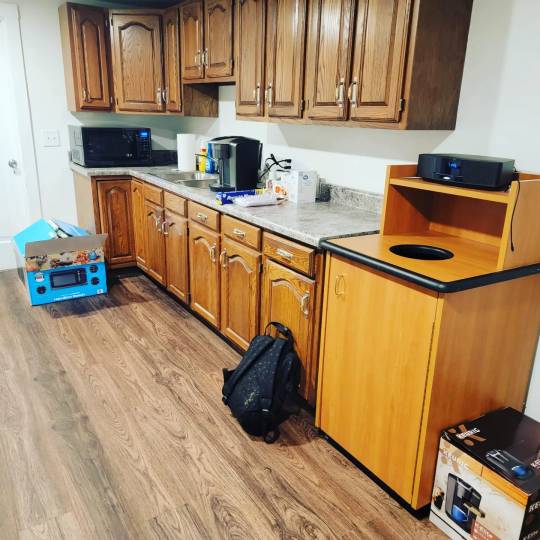

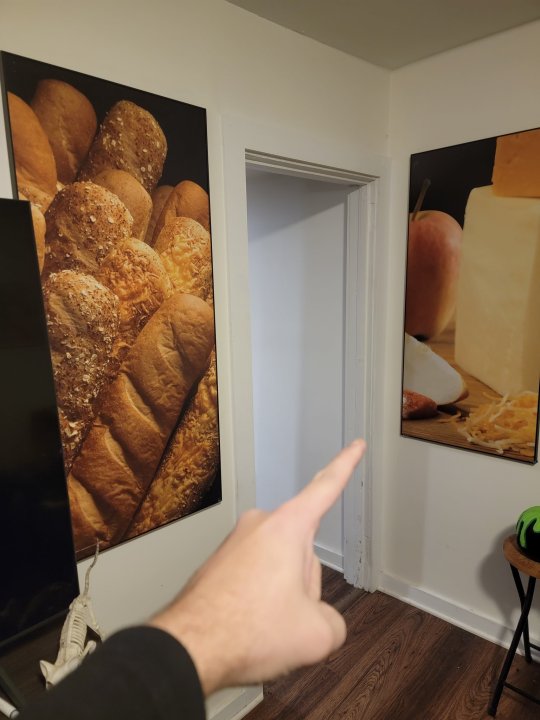
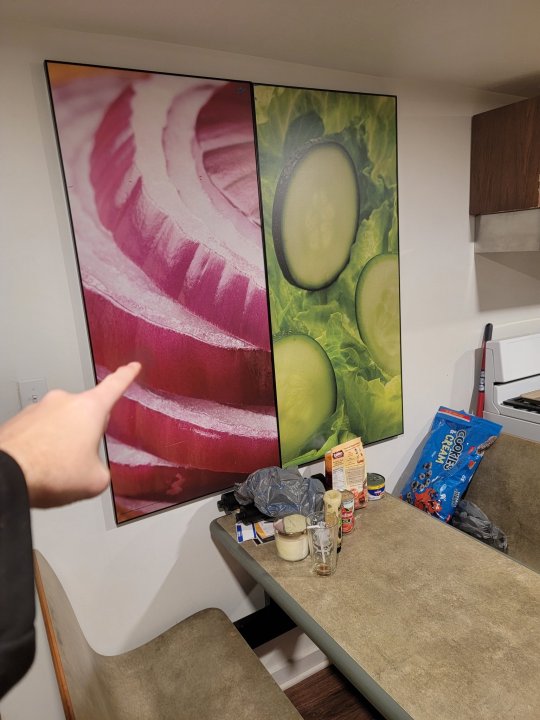
my life is a joke
#mine#subway#eat fresh#sbubby#retail#i should not be allowed to decorate inside my own home#i just think they're neat#fast food#kitsch
130K notes
·
View notes
Text
One massive, legitimate way to improve as a writer or artist or in any creative endeavor really, is to become absolutely obsessed with something and to allow yourself to be weird about it. Genuinely mean this btw.
#dc comics#disco elysium#shakespeare#hamlet#scott pilgrim#<- all this things have made me a better#writer and artist for both fan creation#and for my own original work#literal life hack#allow yourself to become obsessive and cringe to a certain degree#birdy chirps
45K notes
·
View notes
Text
FUCK
#game changer#game changer season 6#game changer spoilers#sam says#sam reich#lou wilson#jacob wysocki#vic michaelis#this is the worst thing I've ever seen actually#i almost cried#the sheer joy of Henry and the thought of not being allowed to see him#also sorry for the terrible quality of the video 😭#pretty sure it's lagging badly but that's all i got 🥲
30K notes
·
View notes
Text
being a student during peak pandemic was so fucking surreal like. "it's not an excuse to fall behind" I cannot stress enough to you how much A Worldwide Plague Upending Life As We Know It is literally one of The Top Three Reasons to fall behind
#you go upstairs to hear the news talk about the death toll hitting 100k. you get some frozen waffles bc its all you've got stocked up#and you wont risk going to get groceries or takeout. you go back downstairs because you have a 3 page essay due.#you stare at your word doc with lofi playing and wonder why you can't just buckle down and work like normal.#or really. you pretend to wonder#because you know the reason you cant work like normal#you just refuse to allow yourself to believe its reason enough#mine#academia#covid mention
68K notes
·
View notes
Text
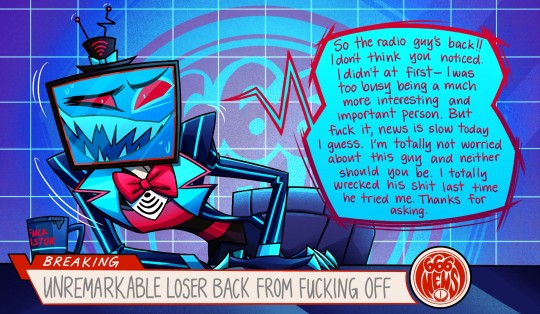
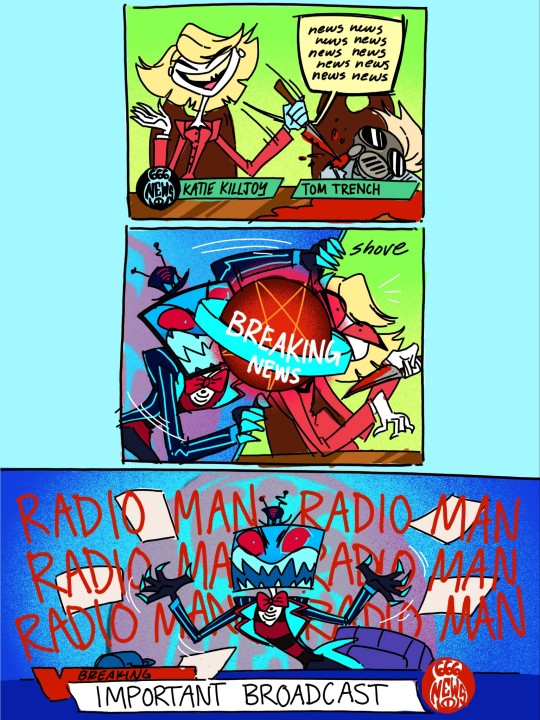
Stayed gone but vox narrates his passive aggressive insecure ass scrolling text from the bottom of his broadcast 👊💥📺
#plus what definitely canonically happened when this very important breaking news interrupted tv#are we sure this guy is allowed to be an overlord#imagining the audience just trying to enjoy their shows and then BOOM TV MAN AND HIS GAY INSECURITIES#your pitch crush is showing#radiostatic#i fell for the fucking tv#vox#hazbin hotel fanart#hazbin hotel#hazbin art#hazbin alastor#hazbin vox#alastor#katie killjoy#my art
24K notes
·
View notes
Text
"smart appliances" fuck u i want them dumb as a brick and incidentally as sturdy and enduring
#if i pay hundreds of dollars for an appliance it's only allowed to die kicking and screaming 30 years after purchase#and even then i expect the replacement parts to be in stock and easily installed fuck u
57K notes
·
View notes
Text
Be furious.






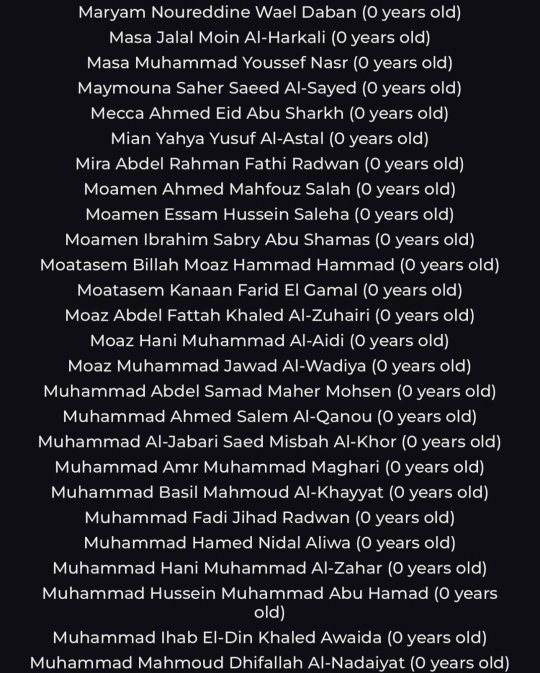
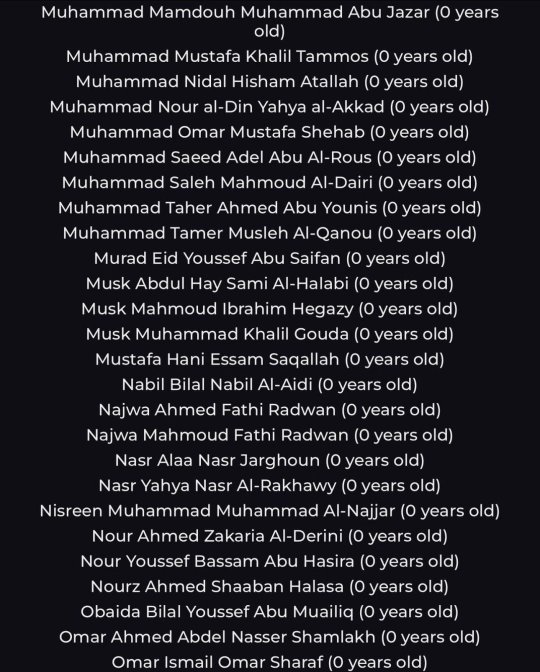
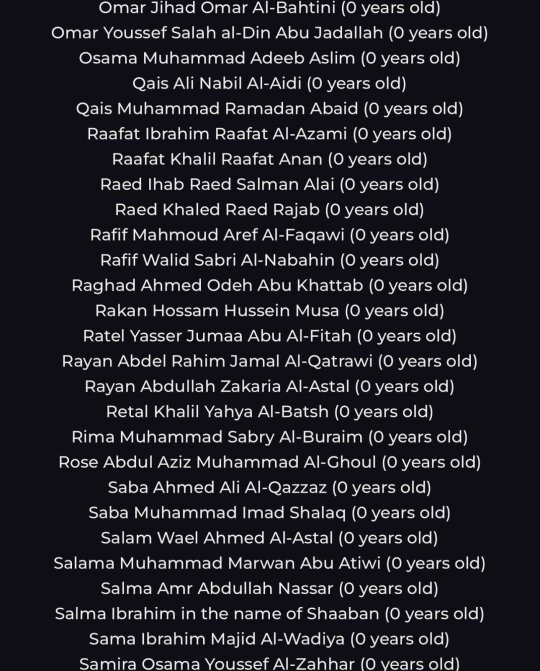

Be absolutely enraged.
Images put together by wearthepeace on Instagram, found them here
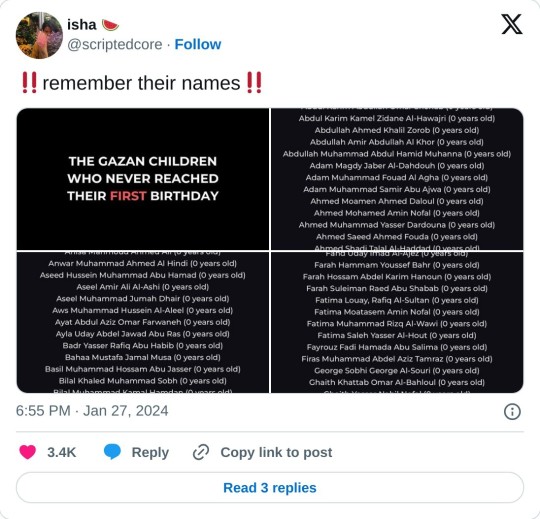
#speak for the ones that weren’t allowed to breathe#free gaza#free palestine#current events#palestine information#support palestine#remember their names#from the river to the sea palestine will be free#pro palestine
37K notes
·
View notes